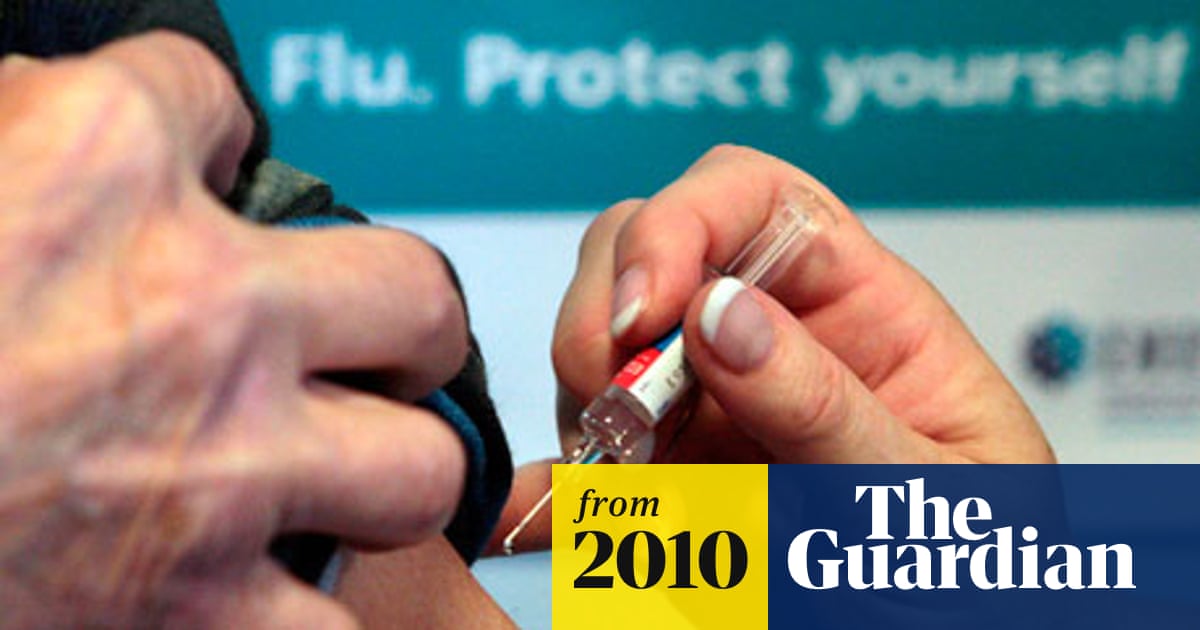Re: UK: Reports of Approximately 31 Deaths and 460 Patients in intensive care (27 deaths confirmed by HPA as for Dec. 23 2010) due to influenza
Thanks Shiloh.
I find some of Dr. Oxford's statements exploitative. We may have a very serious situation here and we need to know the motivations of "the players".
"Professor John Oxford, President, Scientific Director
Professor John Oxford is President, Scientific Director and founder of Retroscreen Virology Ltd and Professor of Virology at St Bartholomew’s and the Royal London Hospital, Queen Mary’s School of Medicine and Dentistry. He has co-authored two standard texts: ‘Influenza, the Viruses and the Disease' with Sir Charles Stuart-Harris and G.C. Schild and most recently, "Human Virology, a Text for Students of Medicine, Dentistry and Microbiology", published by Oxford University Press. Professor Oxford has also published 250 scientific papers."
and guess what? - yes, you guessed it...
"Retroscreen Virology is Europe’s leading specialist virology contract research organisation (CRO). The work we conduct is dedicated to creating the next generation of antivirals and vaccines for a number of respiratory and enteric viral diseases. Our research ranges from pre-clinical (analytical) services through first-into-man (Phase 1a) studies and into human challenge studies (Phase 1b and Phase 2a proof-of-concept)."
Some recent headlines quoting Dr. Oxford:
I am really, really tired of people using a calamity to sell something.
Really tired.....
Disgusting.....
Originally posted by Shiloh
View Post
I find some of Dr. Oxford's statements exploitative. We may have a very serious situation here and we need to know the motivations of "the players".
"Professor John Oxford, President, Scientific Director
Professor John Oxford is President, Scientific Director and founder of Retroscreen Virology Ltd and Professor of Virology at St Bartholomew’s and the Royal London Hospital, Queen Mary’s School of Medicine and Dentistry. He has co-authored two standard texts: ‘Influenza, the Viruses and the Disease' with Sir Charles Stuart-Harris and G.C. Schild and most recently, "Human Virology, a Text for Students of Medicine, Dentistry and Microbiology", published by Oxford University Press. Professor Oxford has also published 250 scientific papers."
and guess what? - yes, you guessed it...
"Retroscreen Virology is Europe’s leading specialist virology contract research organisation (CRO). The work we conduct is dedicated to creating the next generation of antivirals and vaccines for a number of respiratory and enteric viral diseases. Our research ranges from pre-clinical (analytical) services through first-into-man (Phase 1a) studies and into human challenge studies (Phase 1b and Phase 2a proof-of-concept)."
Some recent headlines quoting Dr. Oxford:
"However, virologist Professor John Oxford said: “The time has come to move to vaccinating young children. I appreciate mothers are concerned but the vaccine is safe and swine flu is not.”
Read more: http://www.express.co.uk/posts/view/...#ixzz19NLHzdss
"Prof Oxford said: "That's the paradoxical thing. There were fewer deaths across those age groups compared to younger people last year. The only thing is, younger people can't be persuaded to have the vaccine."
Asked why fewer young people are getting inoculated, he said: "The problem is that on websites like Twitter people are saying we're all going to die from the vaccine, but that is utter nonsense.'"
Read more: http://www.express.co.uk/posts/view/...#ixzz19NLHzdss
"Prof Oxford said: "That's the paradoxical thing. There were fewer deaths across those age groups compared to younger people last year. The only thing is, younger people can't be persuaded to have the vaccine."
Asked why fewer young people are getting inoculated, he said: "The problem is that on websites like Twitter people are saying we're all going to die from the vaccine, but that is utter nonsense.'"
I am really, really tired of people using a calamity to sell something.
Really tired.....
Disgusting.....

Comment